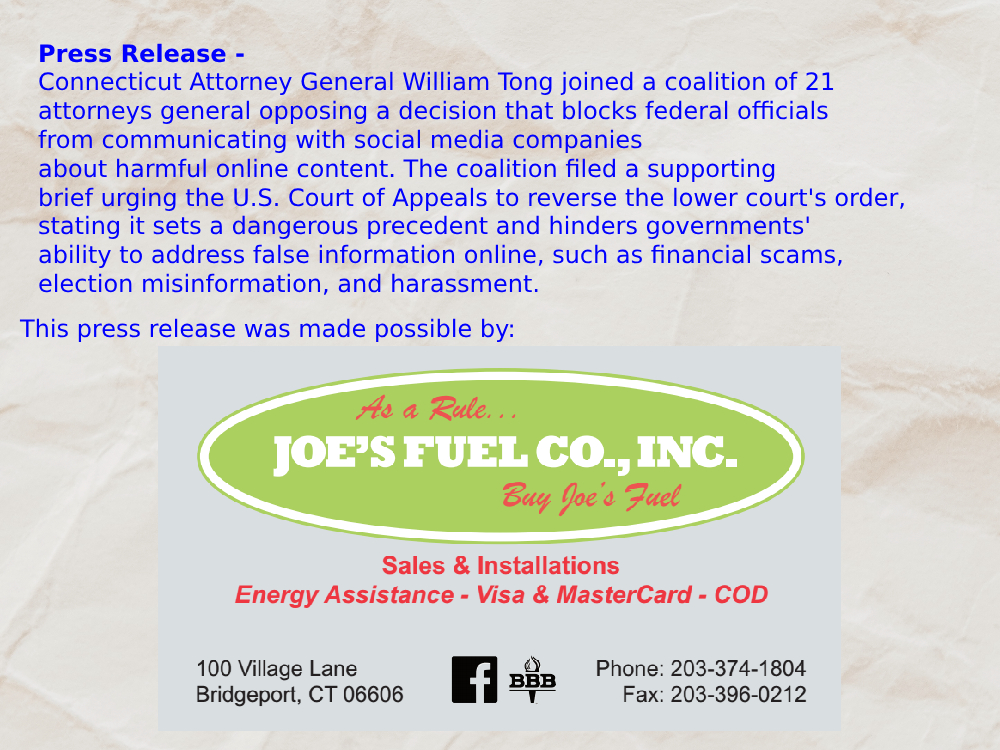(Hartford, CT) – Attorney General William Tong joined a multistate coalition opposing a decision from the U.S. District Court for the Western District of Louisiana prohibiting dozens of federal officials and agencies from communicating with social media companies about harmful online content, including financial scams, misinformation meant to undermine elections, and harassment. The coalition of 21 attorneys general filed an amicus brief in the U.S. Court of Appeals for the Fifth Circuit urging the court to reverse the lower court decision. The coalition noted that the district court’s order sets a dangerous precedent that undermines the ability of federal, state, and local governments to keep Americans safe and secure online.
“Pseudoscience conspiracy theories, election disinformation, and other dangerous viral social media content carry real life consequences. It is not only appropriate, it is imperative that social media companies and government officials communicate to address the spread of false and misleading information. The district order unreasonably blocks these important channels of communication and must be overturned,” said Attorney General Tong.
Social media companies and government officials regularly engage in information-sharing and dialogue, especially during public health emergencies, elections, and other events where the spread of false or misleading information can endanger public health and safety. In May 2022, Missouri, Louisiana, and several individuals brought a lawsuit against dozens of federal officials and agencies, alleging efforts to pressure social media companies to remove or suppress certain speech. In July 2023, the U.S. District Court for the Western District of Louisiana granted a request for a preliminary injunction. The resulting order effectively stops any communication between many federal government officials and social media companies concerning content moderation policies.
Attorney General Tong and the coalition note in the amicus brief that the lower court’s order blocks an important tool that federal leaders have to share information and policy views on how social media platforms can keep Americans safe online, potentially undoing years of mutually beneficial dialogue. The brief highlights examples of productive communication with social media platforms, including the Office of the New York Attorney General’s work to identify and report social media content from the Buffalo mass shooting and its efforts with Amazon to stop sellers from price gouging supplies during the COVID-19 public health emergency. The brief also notes that social media companies have welcomed the input of state governments and federal agencies on topics critical to the public interest, such as protecting children from online harassment and preventing the spread of misinformation designed to undermine election security and integrity.
Joining Attorney General Tong in filing the amicus brief are the attorneys general of Arizona, California, Colorado, Delaware, Hawai‘i, Illinois, Maine, Massachusetts, Michigan, Minnesota, Nevada, New Jersey, New Mexico, New York, Oregon, Pennsylvania, Rhode Island, Vermont, Wisconsin, and the District of Columbia.

